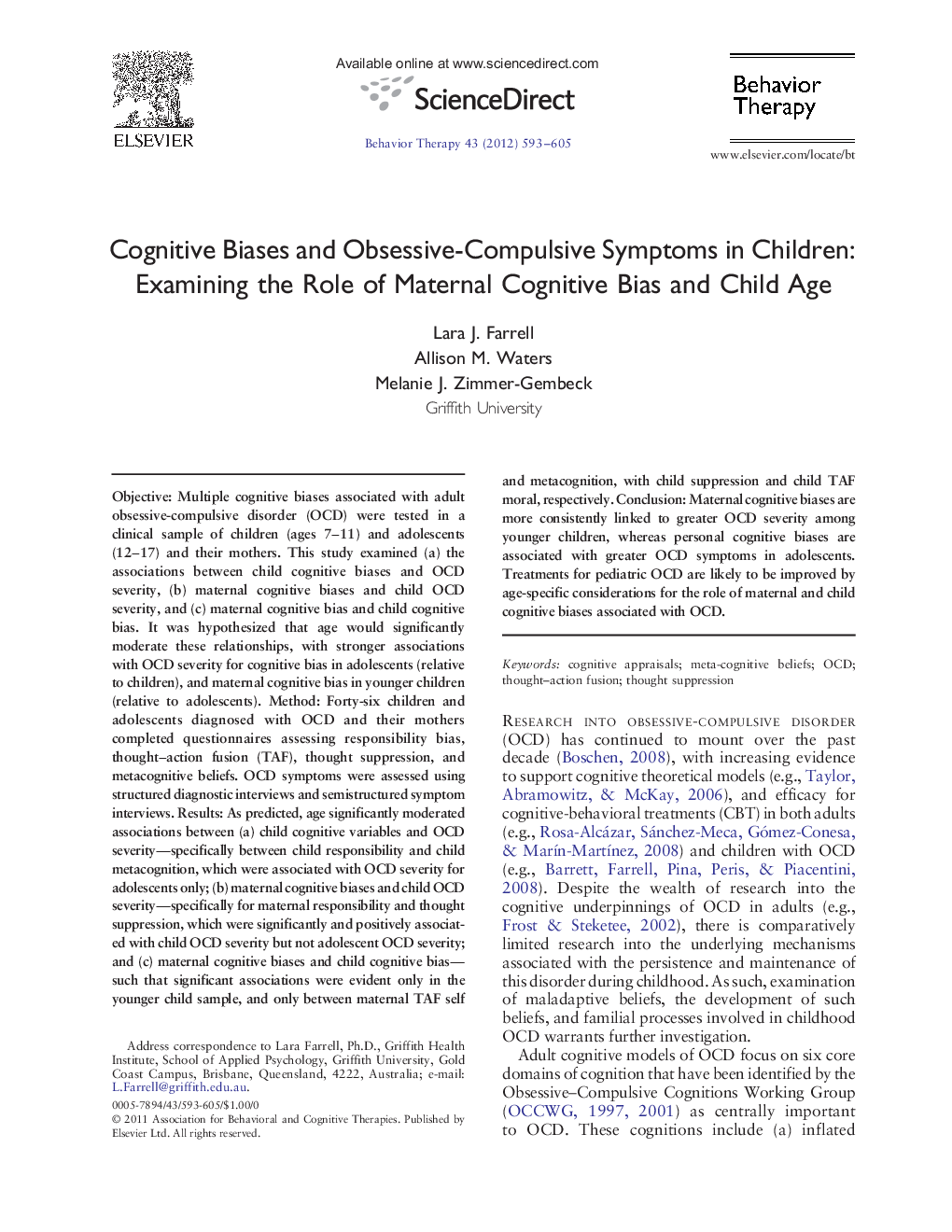| کد مقاله | کد نشریه | سال انتشار | مقاله انگلیسی | نسخه تمام متن |
|---|---|---|---|---|
| 901366 | 915863 | 2012 | 13 صفحه PDF | دانلود رایگان |

Objective: Multiple cognitive biases associated with adult obsessive-compulsive disorder (OCD) were tested in a clinical sample of children (ages 7–11) and adolescents (12–17) and their mothers. This study examined (a) the associations between child cognitive biases and OCD severity, (b) maternal cognitive biases and child OCD severity, and (c) maternal cognitive bias and child cognitive bias. It was hypothesized that age would significantly moderate these relationships, with stronger associations with OCD severity for cognitive bias in adolescents (relative to children), and maternal cognitive bias in younger children (relative to adolescents). Method: Forty-six children and adolescents diagnosed with OCD and their mothers completed questionnaires assessing responsibility bias, thought–action fusion (TAF), thought suppression, and metacognitive beliefs. OCD symptoms were assessed using structured diagnostic interviews and semistructured symptom interviews. Results: As predicted, age significantly moderated associations between (a) child cognitive variables and OCD severity—specifically between child responsibility and child metacognition, which were associated with OCD severity for adolescents only; (b) maternal cognitive biases and child OCD severity—specifically for maternal responsibility and thought suppression, which were significantly and positively associated with child OCD severity but not adolescent OCD severity; and (c) maternal cognitive biases and child cognitive bias—such that significant associations were evident only in the younger child sample, and only between maternal TAF self and metacognition, with child suppression and child TAF moral, respectively. Conclusion: Maternal cognitive biases are more consistently linked to greater OCD severity among younger children, whereas personal cognitive biases are associated with greater OCD symptoms in adolescents. Treatments for pediatric OCD are likely to be improved by age-specific considerations for the role of maternal and child cognitive biases associated with OCD.
► Examined associations between child and parent cognitive biases and OCD severity.
► Forty-six youth with OCD and their mothers were assessed on OCD belief measures.
► Age moderates the associations between child beliefs, mother's beliefs and OCD.
► Maternal biases linked to greater OCD severity among younger children.
► Child biases associated with greater OCD symptom severity among adolescents.
Journal: Behavior Therapy - Volume 43, Issue 3, September 2012, Pages 593–605